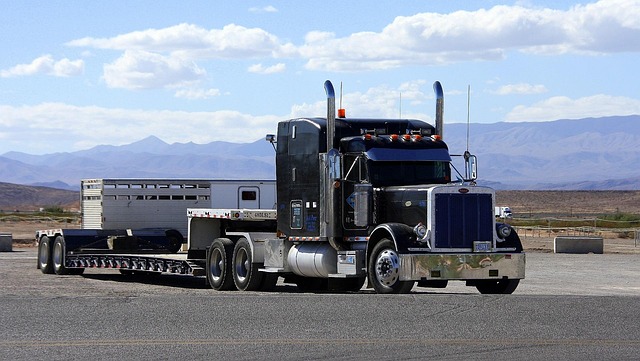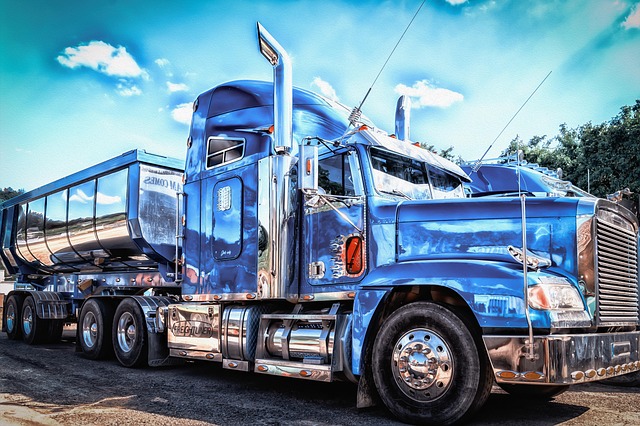In the complex trucking industry, personalized trucking policies are essential tools for insurance providers to address unique risks. By analyzing sector-specific data, these tailored coverage plans mitigate hazards related to vehicle maintenance, driver safety, regulatory compliance, and cargo security. This proactive approach enhances operational efficiency, minimizes downtime, and safeguards investments, ensuring comprehensive protection for diverse trucking operations. Implement best practices like engaging industry experts, conducting thorough risk assessments, and leveraging technology to revolutionize risk management in trucking, setting a benchmark for other sectors seeking similar strategies.
In today’s dynamic business landscape, understanding industry-specific risks is paramount for sustained success. This article delves into leveraging customized plans to mitigate those risks, focusing on personalized trucking policies as a powerful tool. We explore how tailored coverage addresses unique industry needs, offering strategies and best practices for implementation. Through insightful case studies, we demonstrate the transformative impact of personalized trucking policies in managing and reducing risks across various sectors.
Understanding Industry-Specific Risks: A Comprehensive View

Understanding industry-specific risks is paramount in crafting effective strategies for any business, particularly within the intricate landscape of trucking and transportation. Each sector faces unique challenges that demand tailored solutions. For instance, the trucking industry navigates a complex web of issues ranging from regulatory compliance and safety standards to weather conditions and fuel prices. These factors significantly impact operational efficiency and financial stability.
Personalized trucking policies emerge as a powerful tool in addressing these risks. By analyzing industry-specific data and trends, insurance providers can design customized coverage plans that mitigate potential hazards. Such policies account for the unique needs of different trucking operations, ensuring comprehensive protection against risks specific to their activities. This proactive approach enables businesses to maintain smooth operations, reduce downtime, and safeguard their investments in an ever-evolving industry landscape.
Personalized Trucking Policies: Tailoring Coverage for Unique Needs

In the trucking industry, where operations are often complex and diverse, a one-size-fits-all approach to insurance coverage simply won’t cut it. That’s why many forward-thinking businesses are adopting personalized trucking policies—a strategy that involves creating customized plans tailored to the unique risks and needs of individual trucking companies. By delving into this specialized area, insurers can offer more comprehensive protection against potential hazards like cargo damage, driver shortages, or regulatory compliance issues, all of which pose significant challenges in this sector.
These personalized trucking policies go beyond basic liability coverage by incorporating specific risk management strategies. For instance, a policy might include enhanced coverage for high-value goods, specialized driver training programs, or contingency plans for unexpected events like natural disasters. Such tailored solutions not only protect businesses but also foster a culture of safety and efficiency within the trucking fleet, ultimately contributing to cost savings and improved operational resilience.
Implementing Customized Plans: Strategies and Best Practices

Implementing customized plans is a strategic approach that involves tailoring risk management strategies to meet the unique challenges faced by specific industries, such as trucking. One key aspect is developing personalized trucking policies that address industry-specific risks. These policies should be comprehensive, covering various scenarios from vehicle maintenance and driver safety to regulatory compliance and cargo security. Regular reviews and updates are essential to ensure these policies remain relevant and effective in a dynamic environment.
Best practices include engaging experts who understand the intricacies of the trucking industry, conducting thorough risk assessments, and involving stakeholders at every step. Collaboration between insurers, trucking companies, and regulators can lead to more robust solutions. Additionally, leveraging technology for data analysis and risk modeling enables more precise risk assessment and tailored coverage options, ultimately enhancing overall risk management in the trucking sector.
Case Studies: Successful Industry-Specific Risk Mitigation Through Personalization

In the realm of risk management, case studies often serve as powerful tools to demonstrate the effectiveness of customized strategies. One industry that has notably benefited from this approach is trucking. By leveraging personalized trucking policies, companies have successfully mitigated unique risks inherent to their operations. For instance, a study of a regional trucking firm revealed that tailored insurance plans, considering factors like vehicle utilization and driver experience, significantly reduced costs associated with accidents and downtime.
This success story highlights the importance of understanding industry-specific challenges and customizing solutions accordingly. Personalized policies for truckers may include enhanced training programs targeted at high-risk driving scenarios, access to emergency roadside assistance, and comprehensive liability coverage adapted to various cargo types. Such personalized approaches not only minimize risks but also foster a culture of safety and efficiency within the trucking sector, setting a benchmark for other industries seeking similar strategies.
In conclusion, leveraging customized plans tailored to industry-specific risks is a strategic move for businesses seeking enhanced risk mitigation. As demonstrated through case studies, personalized trucking policies can significantly optimize operations and reduce vulnerabilities unique to each sector. By implementing best practices outlined in this article, companies can navigate complexities more effectively, ensuring their assets and personnel are adequately protected. This approach not only streamlines processes but also fosters a robust safety culture, ultimately contributing to sustained success in an ever-evolving business landscape.
